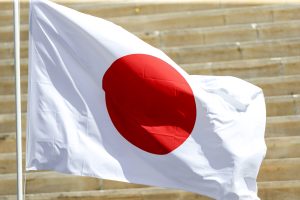The assassination of former Japanese Prime Minister Abe Shinzo on July 8 sparked a wave of commentaries on his legacy. Many analysts linked his political rise to a supposed surge in Japanese nationalism, pointing to increasing defense budgets and retrenched denialism regarding abuses committed by Imperial Japan before and during World War II. Throughout his time in office, Abe came to symbolize Japanese nationalism in the minds of many, but geopolitical shifts, especially in Japan’s near neighborhood, have more to do with the changing perceptions of Japan’s role in the world than any single politician.
In the following interview, Jennifer Lind, an associate professor of government at Dartmouth College, a faculty associate at the Reischauer Institute for Japanese Studies at Harvard University, and a research associate at Chatham House in London, exposes the nuances dividing “nationalism” and “patriotism” in Japan and fits Abe into the evolving continuum of Japanese politics. Lind, the author of “Sorry States: Apologies in International Politics,” pushes back against simplistic narratives about Japanese politics, arguing instead that it is rather remarkable that a country so near an increasingly assertive China and a nuclear North Korea has not had more of a debate about increasing its military and defense capabilities.
How would you describe Abe’s personal strand of nationalism or patriotism?
Abe was a conservative who argued for creating a strong sense of national connectedness and patriotism. Take his book, “A Beautiful Japan.” Abe didn’t denigrate other countries, and certainly wasn’t militarist. But he advocated national pride and as such supported a narrative about the positive aspects of Japan’s identity.
We did see Abe sometimes shade toward nationalism. Indeed, within the LDP, and conservative parties in general, there will be a constant struggle between people who favor more moderate patriotism and versus those favoring a more extreme nationalism. We see this not only in the LDP but within Abe himself.
An example is Japan’s famous 1993 Kono Statement, which acknowledged a past wrong – namely, government involvement in horrific wartime violence against hundreds of thousands of girls and women (the “comfort women”). The Kono Statement was a pretty moderate policy when you think about it; liberals wanted much more interrogation of the history and much more atonement, and conservatives on the far right opposed the statement. When as prime minister Abe suggested he might go after it, this was him at a fork in the road: Would he choose to be Abe the patriot, or Abe the nationalist? (The more moderate patriot is willing to acknowledge past wrongs; the nationalist wants to whitewash or explain them away – or not think about them at all.) Abe chose the more moderate path. At another important moment – his speech on the 70th anniversary of the war in 2015 – he did the same.






























